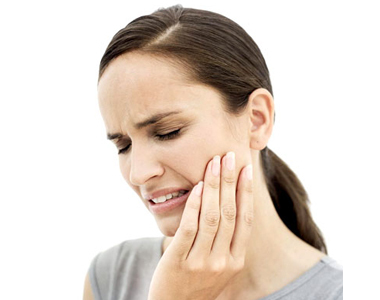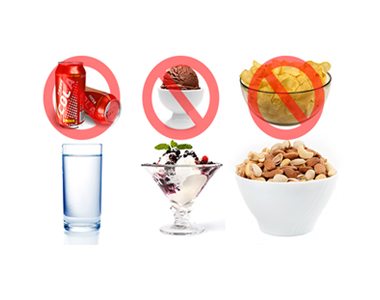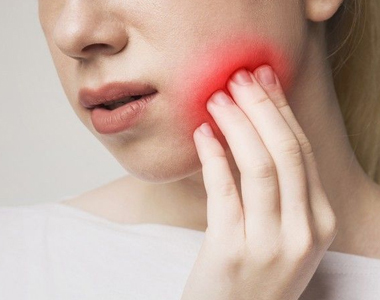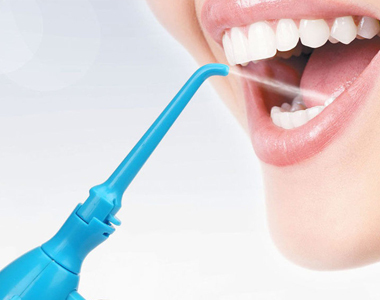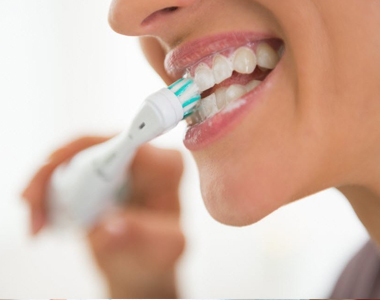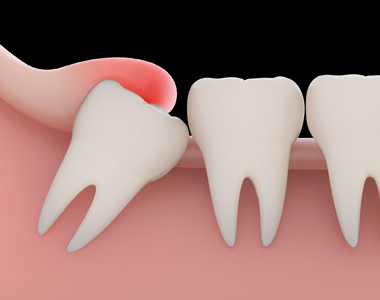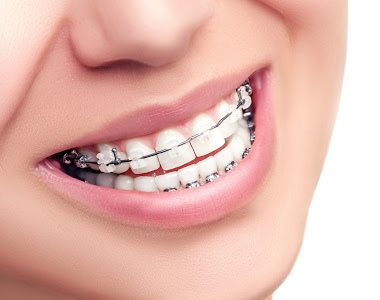August 31, 2020
Acids play an important role in oral health, however when hearing the word ‘acid’ we might be likely to recall the various chemicals we saw in glass bottles in science class at school. We may also think of it as the thing that can cause heartburn and indigestion.
There are several foods and drinks that are high enough in acid to cause a problem for the health of your teeth. High acidity foods and drinks are the cause of dental erosion and can have serious consequences for the strength of the enamel that surrounds and protects teeth.
How acid affects the mouth
Acids leave teeth vulnerable to damage by weakening the enamel. Every time we eat or drink anything acidic, the enamel becomes softer for a short while and it loses some of its mineral content. Enamel is the hard, protective coating of our tooth, which protects the sensitive dentine underneath. The dentine underneath is exposed, when the enamel is worn away which may lead to pain and sensitivity.
Naturally, saliva will slowly cancel out this acidity and restore the chemical balance in the mouth. However, if this acid attack happens over and over, it could result in permanent damage to the enamel.
The most common types of acid in food and drink are carbonic acids, citric acids, and phosphoric acids. These are the acids that weaken enamel, leading to dental erosion.
The main culprits when it comes to acidic foods and drinks are the two Fs: Fizz and Fruit.
Fizz
‘Fizziness’ is often a tell-tale sign of an acidic drink. The most common of these are fizzy drinks, sodas, pops, and carbonated drinks. Even the ‘diet’ brands that contain “Fizz” are harmful.
Some alcohols are also acidic. Beer, cider, prosecco, white wine, and alcopops are all examples of alcoholic drinks that are highly erosive for teeth.
Dr. Nigel Carter OBE, Chief Executive of the Oral Health Foundation says: “The best way for us to avoid the damage caused by fizzy drinks is to simply limit our exposure to them.” Try reducing exposure to acidic drinks by eliminating them outside of mealtimes.
Another tip is to swallow the drink quickly, without holding it in your mouth or ‘swishing’ it around. Again, it’s all about reducing the amount of time the teeth are being exposed to acid. Using a straw helps drinks go to the back of the mouth and avoids additional contact with teeth.
Dr. Soha Dattani, Director Scientific & Professional Affairs at GSK Consumer Healthcare says: “The drinks market is full of products which are high in acidity and that can play havoc on the enamel of our teeth. As consumers, this often makes it difficult for us to make healthy choices when choosing our drinks.” This is true whether we’re in a supermarket, a restaurant, attending events, or socializing.
Plain, still water is the best drink for teeth. Milk is also good because it helps to neutralize acids in the mouth.
Fruit
Fruits form an integral part of a healthy balanced diet. However, fruits can encourage dental decay as they contain citric acid.
Citrus fruits are the worst offenders as they have low pH levels, which means they are acidic. The most acidic fruits are lemons, limes, plums, grapes, grapefruits, blueberries, pineapples, oranges, peaches, and tomatoes.
There are a few things we can do to limit the dental damage caused by fruits.
Dr. Nigel Carter adds: “The first thing we can do, much as with fizzy drinks, is to keep them to mealtimes. Consuming fruit at breakfast, lunch, and dinner should provide the appropriate number of daily portions while not putting teeth under unnecessary strain.
Secondly, always try to consume fruit in its whole form and not as fruit juice. While most fruit contains natural sugar, many fruit juices also have added sugar. This is not good for teeth. Whole fruit is also packed full of vitamins, minerals, and fibre, which is often missing or reduced in concentration in fruit juice.
More tips and advice
Erosion of the enamel from acidic foods can cause sensitivity in your teeth- this may be one of the first signs of dental erosion. If you experience sensitivity to temperature or sweet foods, you should schedule an exam with your dentist. Sensitivity can be treated with special ‘desensitizing’ products to help relieve the symptoms. This may include fluoride gels, rinses, or varnishes.
The symptoms of dental erosion can also be managed at home, while waiting for a dental appointment, with products like toothpastes designed to reduce sensitivity and strengthen enamel. Your dentist will be able to advise which type of toothpaste is best for you.
Borthwick, Josh, “ What foods and drinks contain acid and why it spells trouble for our oral health”. Oral Health Foundation. https://www.dentalhealth.org/blog/what-foods-and-drinks-contain-acid-and-why-it-spells-trouble-for-our-oral-health


 Review Us
Review Us  Review Us
Review Us 
